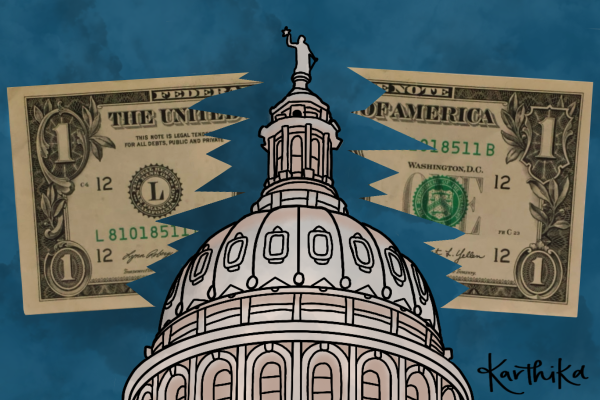Not talking for one day
Changing Perspective

When I originally told my friends that I would not be talking for a day, I received mixed reactions. Some thought I was nuts, while others agreed that it was a cool social experiment.
I did not anticipate how hard it would actually be. I chose Sunday, Nov. 6, to test this out because I have many responsibilities at church, being the senior pastor’s daughter at Semihan Church in Carrollton.
There were a few exceptions I set for myself to make things more bearable. I could text, make noises like laughing and could only talk if an adult talked to me to show respect.
I am not a particularly talkative person unless I am around close friends. Admittedly, I put up a facade at church because I was always taught that whatever I do represents my parents the way my parents taught me. I am cautious about my actions so I do not do anything out of the blue. As a result, not many people noticed my lack of speech besides my close friends, who were already informed about my experiment in silence.
Not being able to talk throughout the day did, surprisingly, not require exaggerated body language to compensate. My facial expressions, however, felt over-exaggerated because there was no way to communicate the tone of voice in my reactions to what the other person was saying. I realized how dependent humans are on solely just talking, when other things like hand gestures have been proven to be more effective than the actual words that are coming out of your mouth.
I have always considered myself to be a good listener and I do prefer listening over talking a lot of the time, but since I could not verbally contribute, I found myself listening to every single word the person was saying and felt more in tune with my other senses.
Throughout the day, I felt like a volcano on the verge of a massive eruption. Keeping my thoughts contained in my own head was more stressful than I anticipated. What got me through the day was the promise of being able to speak again the next day.
But this made me think about the people who do not take as much comfort in speech as I do. What if they want to talk but because they are so used to the quiet image they have created, they feel as if they cannot break out of their bubble?
Staying silent for a long period of time makes it easier to not say anything accidentally but makes it harder to break the mindset of silence. For people who are normally shy and quiet, I can see how it would play a big role in their relationships and interaction on a daily basis.
When my friend was talking to me, I felt more connected in the sense that I did not feel distracted because I was not thinking about my response, but rather paying my fullest attention to all that she was saying. I was able to notice more quirks about her, like how she uses certain gestures to elaborate on her story and how she created a visual of what she was saying through her hand motions.
Communication is very important because it is the basis of any good relationship. Rather than just exchanging thoughts back and forth through talking, it also involves a lot of listening skills and facial expressions to show the other person how invested you are in the conversation.
I realized a lot more than I expected and this experience has made me feel more empathy towards quiet people. Based on the amount of events that unfolded in one day, quiet people must notice a lot more on how people act than people who do not pay as much attention to others as they speak. It helped me gain some understanding about the intricacies of communication; meaningful interactions do not always have to include words.

Rachel Choi is a first year sophomore staff writer who enjoys reading books and listening to podcasts like How Stuff Works. She spends...









